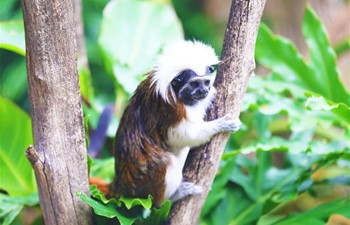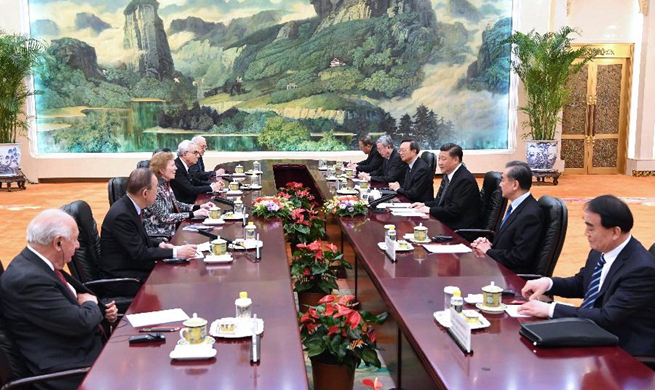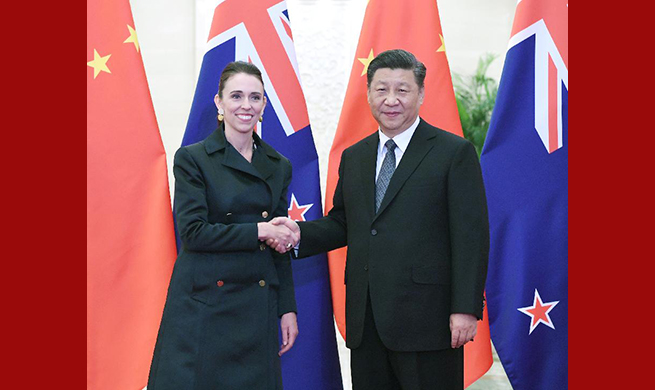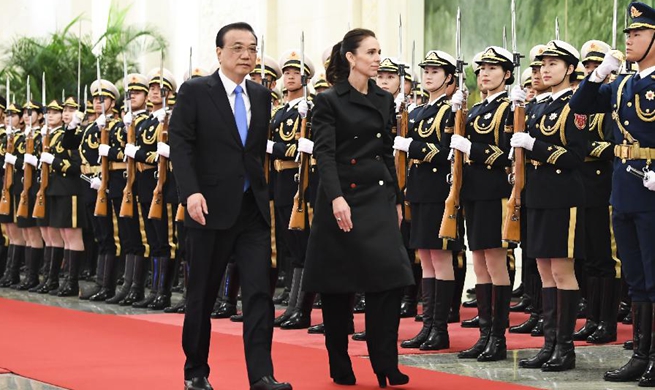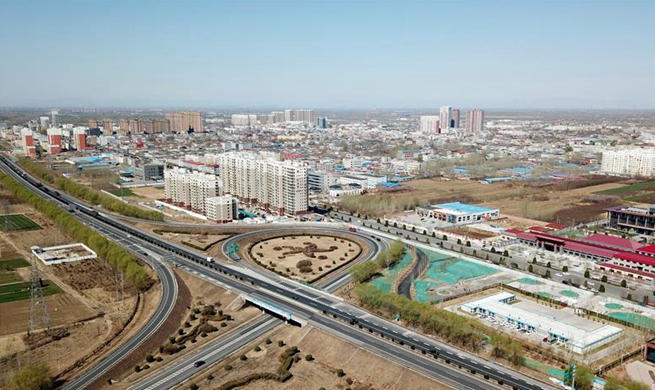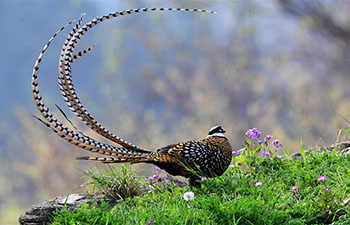BEIJING, April 2 (Xinhua) -- Chinese agriculture scientists have bred new rice varieties named "Green Super Rice (GSR)" for developing Asian and African countries to reduce hunger and increase the income of farmers.
Supported by the Chinese government and the Bill & Melinda Gates Foundation, the project has bred 78 GSR varieties for 18 countries with a total growing area of 6.12 million hectares since its launch in 2008, hoping to benefit 30 million resource-poor smallholder rice farmers in Asia and Africa.
GSR varieties are superior rice varieties that can produce high and stable yields. They need less chemical fertilizers, pesticides and water, and are more tolerant to pests, diseases, drought, salinity, submergence and other abiotic or biotic stresses, said Li Zhikang, a researcher at the Chinese Academy of Agriculture Sciences.
The target regions of the project includes nine other Asian countries (Philippines, Vietnam, Laos, Cambodia, Indonesia, Sri Lanka, Bangladesh, India, and Pakistan) and nine African countries (Mozambique, Tanzania, Rwanda, Liberia, Ethiopia, Uganda, Nigeria, Mali and Senegal). In addition, Sichuan, Yunnan, Guizhou provinces, and Guangxi Zhuang and Ningxia Hui autonomous regions of China are included.
The research team led by Li has developed an efficient molecular breeding strategy by which the selecting period of new varieties can be cut down from 8-10 years to 4-6 years.
Scientists upgraded the varieties, which were grown in a temperate zone in China to adapt to a tropical climate. The target countries choose from abundant varieties with diverse superiority according to their local agriculture conditions including drought, submergence and problematic soils.
With a stronger tolerance for tough conditions, GSR varieties can achieve an average 0.89-1.83 tonnes increase per hectare, which is worth 230.9 dollars per hectare for a rice farmer, according to a survey conducted in the Philippines.
When super Typhoon Haiyan devastated the central Philippines in 2013, most coconuts in the area, on which local farmers depended for their livelihood, were destroyed. A silver lining to their gloomy situation came in the form of GSR seeds they received several months before the typhoon came.
"I like GSR because its grains are good and are considerably heavier than previous rice grains I tried in the past," said Montano, one of the first farmers to grow the tough variety GSR 8. "The crop is tolerant to pests and diseases."
"Even though we were badly affected by the typhoon, we were able to improve our livelihoods and get back on our feet because of GSR 8," said Lazarte, another typhoon survivor.
"I have seen significant change and tremendous potential also in African countries," said Li Zhikang. When he investigated in Africa five years ago, the total amount of rice planting area in Africa was a bit more than 100,000 hectares, but the number climbed to 1.2 million until 2018.
Since 2012, the GSR project has supported an international effort for sequencing a collection of 3,010 diverse rice accessions from 89 countries which represent 95 percent of the genetic diversity of global rice seed resources, believed to be the world's largest project in plant genome resequencing.
The results have been published in the journal Nature. The free availability of all data generated from this effort and seeds of all sequenced rice germplasm accessions have contributed tremendously to global efforts in rice functional genomics, and advanced the global rice breeding in the era of genome-based breeding by design, according to the research team.
Under frequent extreme weather and climate events, scientists are facing serious challenge to enhance rice productivity of resource-poor fields in Asia and Africa.
"China has a very strong rice breeding and rice genetics effort, and the GSR project has shared germplasm resources from Chinese research institutes to many Asian and African countries," said Gary Atlin, senior program officer of the Bill & Melinda Gates Foundation. "China has provided really wonderful support for rice research and development all over the developing world."
As the Belt and Road Initiative has become popular among more and more countries, a lot of advanced technology and products from China will go abroad and play a key role in promoting food security in resource-poor areas, said Li Zhikang.








